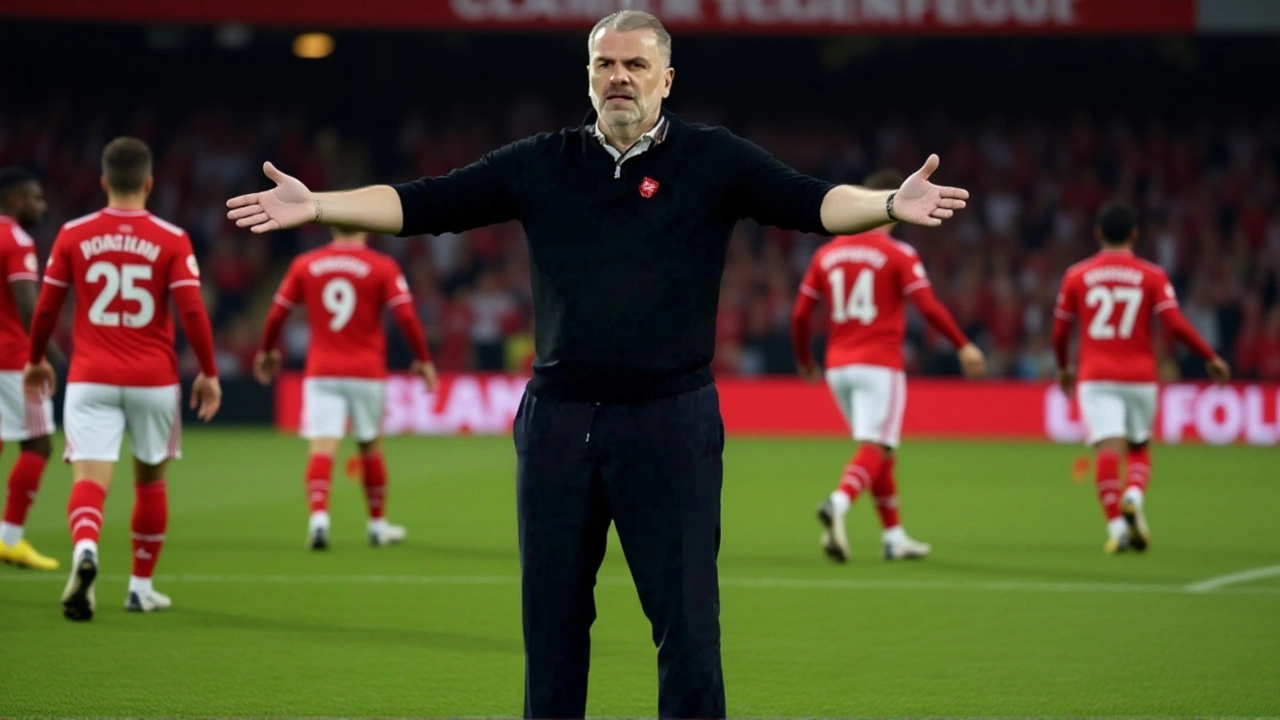Early Matches Reveal Troubling Patterns
When Ange Postecoglou signed a two‑year deal with Nottingham Forest on September 9, 2025, fans imagined a fresh tactical approach and a return to the club’s former glories. The Australian’s résumé – a domestic treble with Celtic and a pioneering stint at Tottenham – seemed to promise exactly the kind of transformation the City Ground needed.
The optimism evaporated quickly. Forest’s opening game under Postecoglou ended in a 3‑0 thrashing by Arsenal, a result that set a bleak tone for the early weeks. The loss was not a one‑off; a subsequent defeat to Swansea followed, leaving the team winless after two matches.
Things appeared to improve when Forest managed draws against Burnley and Real Betis, but both games exposed a worrying habit: the team took the lead only to surrender it. Against Burnley, Forest led 2‑1 before conceding an equaliser in the final ten minutes. The Betis encounter saw a similar story, with Forest ahead at halftime and then slipping to a 1‑1 stalemate.
The latest blow came at home, where Forest fell 2‑1 to newly promoted Sunderland. Losing to a side that had just climbed into the top flight on the City Ground amplified the pressure on the new boss. Supporters, who are used to hearing the roar of a packed stadium, now faced silence as the club slipped further down the table.
Analysts have begun to highlight the statistical oddities of Postecoglou’s start: three matches where Forest led, three matches where they have not secured a win, and a goal‑difference that sits at –5 after just five games. Some pundits argue that these numbers hint at deeper tactical missteps, while others point to a possible psychological slump within the squad.

What Lies Ahead for Forest and Postecoglou
Postecoglou’s track record suggests he thrives on rebuilding projects. At Celtic, he transformed a club in transition into a dominant force, winning the league, cup, and league cup in a single season. At Tottenham, he faced the intense scrutiny of the Premier League and, despite a short tenure, became the first Australian to manage in England’s top flight.
Those experiences could serve as a blueprint for Nottingham Forest, but the context is different. Forest is battling relegation worries, a limited transfer budget, and a squad that has struggled to adapt to new ideas. The manager has publicly spoken about his love for “challenging projects” and his attraction to Forest’s rich history, but translating enthusiasm into results is another matter.
Key areas that need immediate attention include defensive organization and game management. In the Arsenal loss, Forest’s back line was exposed by quick wing play, while the Sunderland game exposed a lack of concentration in the final stages. Improving set‑piece defending and reinforcing the midfield could help the team retain leads more effectively.
Transfer activity will also shape the next few months. Rumors suggest that Forest may look to bring in experienced Premier League players on loan, aiming to add depth and leadership. Any new signing will need to align with Postecoglou’s high‑pressing philosophy, which has traditionally required players with high stamina and tactical discipline.
The fan base is watching closely. While early signs are far from encouraging, there is still room for a turnaround. The next few fixtures against mid‑table opponents could provide the platform for a confidence boost. If the team can hold onto a lead for a full 90 minutes, the narrative may shift from “doomed to fail” to “still in the fight.”
 Sep, 28 2025
Sep, 28 2025
